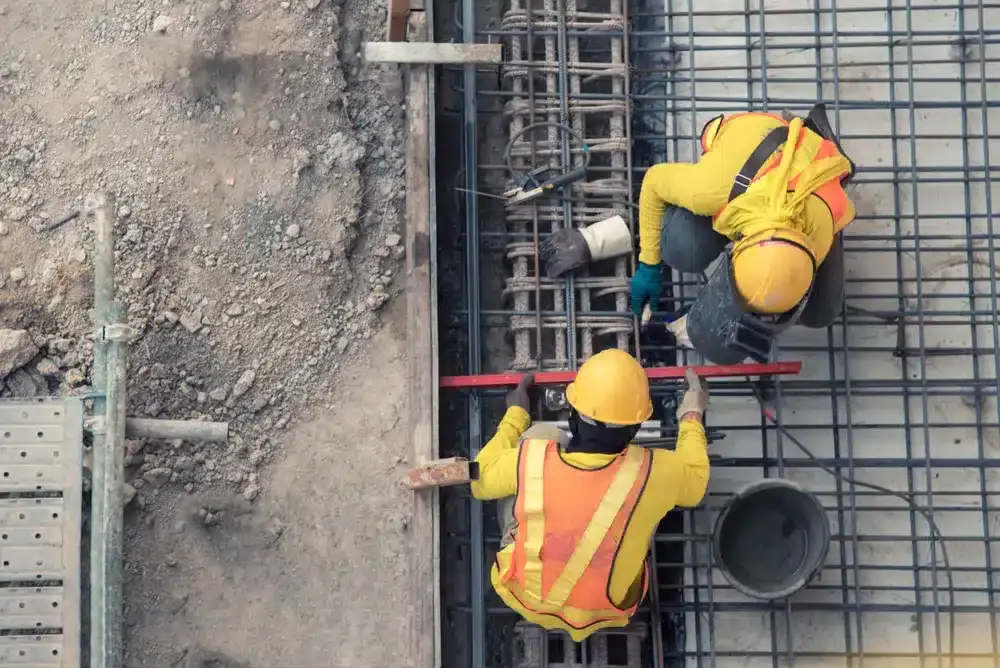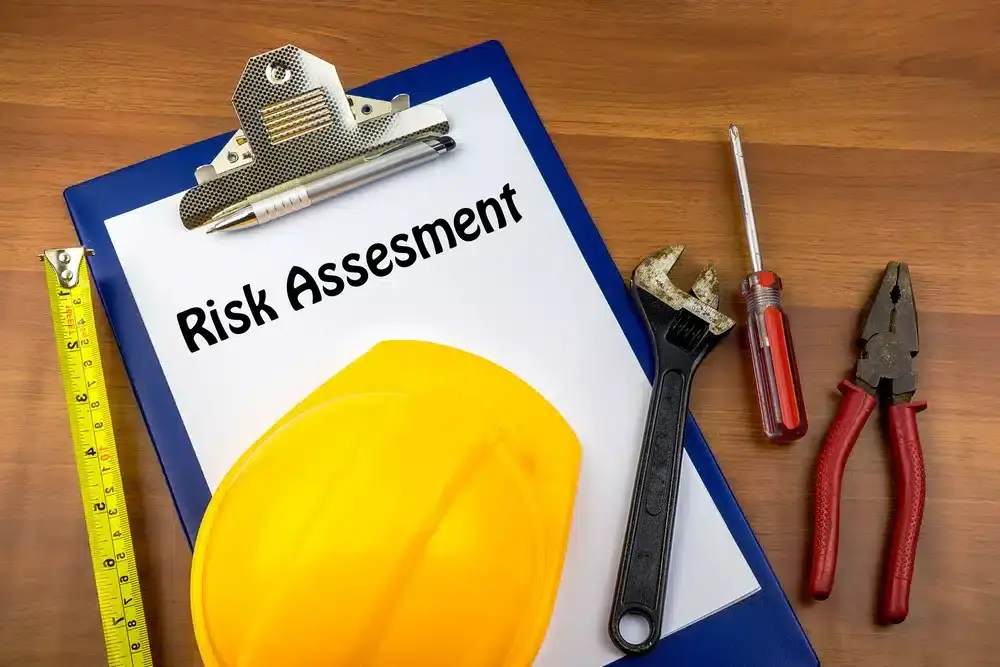Understanding a construction bond is essential to build trust and protect project owners, contractors, as well as the whole of the construction industry. Construction bonds are an effective instrument which can guarantee financial security and mitigate risks for all involved in a given project. There exist different types of these securities with each offering particular benefits yet limitations depending on specific situations. Their application always leads to growth within this sector.
Key Takeaways
- Construction bonds are contractual agreements that guarantee a contractor’s performance and protect project owners from financial loss.
- Obtaining construction bonds requires careful consideration of the surety company, an underwriting process to assess risk, and payment of premiums based on the contractor’s creditworthiness.
- Construction bonds provide contractors with multiple advantages such as building trust between project owners, expanding business opportunities and securing projects.
Understanding Construction Bonds

In the construction industry, bonds are a critical component for successful project completion and financial security of all parties involved. These legal arrangements consist of three players: The principal (construction company or general contractor), obligee (project owner) and surety firm who guarantee that the contractor performs their duties to fulfil obligations as written in contractual agreements while shielding clients from possible losses financially. Construction bonds protect property owners against any potential risks associated with large-scale projects which could have major fiscal implications if not handled appropriately.
Types of Construction Bonds
Construction bonds of different types have specified applications in construction procedures. A bid bond for instance, assures the owner that a contractor will adhere to both cost and other conditions stipulated on it when they enter into an agreement, Providing them with payment as well as payment and performance bonds and assurance securities should they gain the contract.
Performance bonds secure project owners against any contractual obligations not met by contractors along with ensuring timely payments are made to subcontractors and suppliers related to their work/ materials provided. Maintenance bond ties guarantee craftsmanship over a certain time frame subsequent from task finishing while supply strings provide stability for getting contracts certificated legally onto practitioners starting businesses in this field . Lastly subdivision chords promise general public that developers involved can make suitable advancements relating directly or indirectly back toward city properties (roads, sewers etc.) pleasantly achieved by industry standards
The Role of Surety Companies With A Construction Bond
Surety companies have a major role to play in the arena of construction bonds. They are responsible for providing these financial instruments, assessing the risk profile of contractors and guaranteeing reimbursement should there be any bond claims related to a building project. In this sense, they offer assurance while acting as an intermediary between builders and those investing in projects. Thus mitigating associated risks within the realm of constructions works to provide construction surety bonds.
Reinsurance contracts add another layer on top when it comes surety businesses’ operations too since such arrangements guarantee their recovery from defaulting bonded contractors – giving peace-of-mind that enables them sustainably support activities undertaken within this industry sector
The Importance of Construction Bonds

Construction bonds represent a major factor in risk management strategies for construction projects. Not only do these surety instruments offer contractors more prospects of success, but they also grant obligees the opportunity to seek recompense when there are defaults on contractual stipulations. In short, through utilizing such measures, both parties benefit as it aids legal obligation fulfilment and provides monetary protection for project completion. Various components relevant to ensuring successful outcomes can be safeguarded with their inclusion into any given scheme. Thus solidifying them as an integral part of any fruitful endeavor within this domain of workmanship
Construction Bond Legal Requirements
It is necessary for most public projects and common in commercial works to have payment bonds, which are often required by law. Companies present on the Fortune 500 list or major developers may ask contractors for contract bonds as part of their policy. Having these kinds of under construction contract bonds guarantees that project owners comply with legal obligations while avoiding any financial risks involved with such work.
Financial Protection
Construction bonds are an important tool that help secure financial protection for both the project owner and contractor. Bid bonds ensure that if a particular bid is accepted, then the bidder will uphold their end of the agreement. In both bid and performance bonds in other words, they guarantee payment at quote level. Payment bond meanwhile cover any liens on property as well as providing assurance to subcontractors and suppliers alike about being compensated properly, thus contributing greatly towards decreasing risk factors during construction projects while encouraging timely completion.
Obtaining a Construction Bond

Selecting a reliable surety firm is the first step in getting construction bonds. Underwriters must evaluate risk before issuing them, and premiums are based on the applicant’s credit rating, experience level and financial capability. Knowing all of this upfront helps contractors better prepare to obtain their necessary bond for any project they may be undertaking. Doing so increases their chances of successfully attaining it too!
Choosing a Surety Company
The choice of a reliable surety company is essential for the procurement of construction bonds, like a bond guaranteeing payment in case of default on part of the contractor. To secure successful cooperation with their chosen company during all phases that require such a bonding process, contractors should examine its industry experience and financial soundness as well as its standing within the sector. For finding an appropriate firm providing these services other sources than online reviews may also be consulted: feedback from colleagues can provide insight into how certain companies operate when it comes to assuring safety through issuing necessary bonds. Quotes obtained by comparing different surety companies allow one to assess competitive options available before signing up with any particular service provider offering specified kinds of guarantees known As ‘surety bonds.
Underwriting Process
In order to secure a bond for any construction project, an underwriting process must take place. It looks into the contractor’s creditworthiness and their track record in terms of experience within the industry as well as financial strength so that it can decide how much money should be applied towards bonding capacity. When assessing what line amount of a the bond amount is suitable for the given contractor, surety companies evaluate business finances, previous professional involvement in related sectors and overall economic standing.
Throughout this analysis phase carried out by surety firms may require contractors to submit documentation such as WIP (work-in-progress) reports along with financial statements and information about organisational structure which helps determine risk factor involved with issuing bonds from different conditions relating thereto .
Bond Premiums and Costs

Bond premiums and expenses refer to the charges connected with acquiring a bond for construction. The fee is Determined by the amount of money involved in the project, which can range from 0.5% up to 10%. Several components are considered when assessing these costs. Including what type of bond is being taken out, any qualifications that contractors possess, risk level associated with the bond application job scope and more. Knowing all these elements allows those concerned to accurately predict their obligations financially and plan ahead accordingly so they’re prepared for anything potentially unexpected along their journey’s way.
Managing Construction Bond Risks

Risk management in the construction industry involves recognizing potential threats such as insolvency and reinsurance for surety companies, To minimizing bond claims by fulfilling contractual duties. Being aware of these risks and implementing preventive strategies can increase contractors’ chance at successful project completion while strengthening their relationship with surety firms.
Avoiding Bond Claims
In order to stay clear of bond claims, contractors should observe their contractual requirements and keep a healthy financial standing. They must form positive relations with the surety company before signing any agreement or bond claim so as not avoid misapprehensions that might lead to future disputes concerning bonds.
Communication between parties involved in this process is very crucial for successful prevention of such issues from arising. It’s necessary then, if matters arise afterward, these should be attended without delay or hesitation on either side.
Insolvency and Reinsurance
Surety companies may encounter financial insecurity during times of economic difficulty, as they are unable to fulfill their monetary duties. As a means of combatting this vulnerability and securing stability, these firms have reinsurance agreements in place which allow them to distribute the liability of construction contracts between various entities and safeguard bond claims should any contractor experience insolvency.
Comprehension about potential risks from bankruptcies together with information on insurer contracts allows contractors to make more informed decisions when selecting surety providers and overseeing their construction bonds’ perils.
Benefits of Construction Bonds for Contractors

Construction bonds enable contractors to build strong relationships with surety companies, increase their bonding capacity and secure projects while establishing trust among project owners. This is especially beneficial when undertaking smaller tasks as well as larger ones. All of which are made possible through effective use of the relevant construction bond definition and instruments.
Building Strong Foundations
Getting started with simpler projects and bonds gives contractors the necessary experience to build a solid foundation for advancement. By accomplishing these small tasks on-time and being dependable in fulfilling contractual obligations, they can progressively increase their bonding capacity thus allowing them to take on larger work. This not only helps acquire knowledge but also shows trustworthiness towards project owners and surety companies which would create more possibilities down the line.
Strengthening Relationships with Sureties
For contractors, creating a solid connection with their surety company is key for success. If they develop trust and show that they can follow project specifications effectively then it will likely result in bigger opportunities and increased bonding capacity which opens access to larger projects down the line. Maintaining an open dialogue helps maintain a strong relationship between both parties so as to ensure sustainable growth of the contractor’s business over time.
Limitations and Exclusions of Construction Bonds
Construction bonds provide many advantages but there are certain restrictions and exceptions which must be taken into consideration. These include overseas projects, multi-year contracts or private remodeling work that is not supported by government funding.
Being aware of such limitations allows contractors to plan their operations correctly and acquire the correct type of bond for each project’s bond requirements beforehand.
Case Studies: Construction Bond Success Stories
The potential of construction bonds to benefit contractors has been demonstrated by numerous success stories. A bond agent was able to help a contractor enhance their bonding capabilities, providing them with the resources and information required for successful bidding on projects. One South Carolina-based company found success when they used a bond line as their first bid bond as part of a project – emphasizing that this type of financing is essential for securing contracts in the industry.
These same types of bonds can be utilized across various initiatives for construction companies. From new builds through expansions or even equipment acquisitions, offering contractors flexibility while growing their businesses towards desired outcomes. In short, acquiring investment in forms such as construction bonds have proven highly beneficial for many operators within the field .
Summary
Construction bonds are essential for the construction industry, granting financial security and trust between contractors and project owners. Knowing about different types of construction bonds, how surety companies work with them, as well as the steps to obtaining/managing these crucial elements can help a contractor build success in their business endeavors. The importance of effectively utilizing such services cannot be understated. They provide strong foundations that allow both parties involved to establish healthy relationships while enabling growth opportunities down the line.
Frequently Asked Questions
What is an example of a construction bond?
A bond is often required if someone wants to make a bid on construction projects, and this type of bond is known as contractor license bond or a Bid Bond. There are several other types of bonds for such purposes which include Performance Bonds, Payment Bonds, Maintenance Bonds, Supply Bonds , Subdivision Bonds and Site Improvement ones. All these different kinds of constructions bonds provide protection that ensure the completion of work by all parties involved in the project or task.
What is the meaning of bond in construction?
A construction bond is a financial assurance that the contractor will abide by their contractual obligations and a performance bond also guarantees payment for any work done. It works as an added protection to owners from non-payment, substandard services, insolvency or warranty issues.
What are the four types of surety bonds in construction?
Construction bonds are a type of financial agreement and there are four main types: bid bonds, performance bonds, labour & material payment bonds and consent or surety’s consent. These forms of bond help to ensure that the contractor fails all the related parties complete their contracted obligations in accordance with set terms when undertaking construction work.
What’s the difference between being bonded and having insurance?
Insurance is a safeguard for your business and assets, while bonds are intended to guarantee that you will meet the requirements of an arrangement on behalf of your client. In terms of insurance claims, these are paid directly to the company. With bonds payments go straight from bond company to their respective obligee or third party beneficiary. Bonds offer security assurance just like insurance does – yet it makes sure that contractual agreements set out by customers are adequately met .
What is bonding used for in construction surety bonds?
Construction bonds, which are a type of surety bond, provide protection against financial losses resulting from contractors who do not fulfill project requirements or contracts. These bonds guarantee that bills will be paid and the public safeguarded by making certain that the contractor’s performance measures up to their commitments in regards to workmanship and maintenance.


